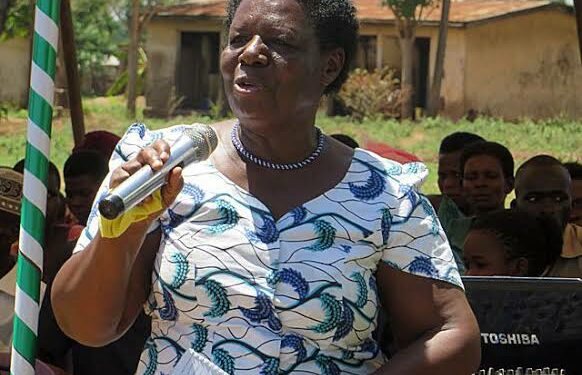BY NELLY OTTO
THE question of when sex education should be extended to teenagers or not remains a debatable matter among different key stakeholders who look at the matter from different perspectives.
According to experts, adolescence is a period of transition, exploration and opportunities that the World Health Organisation (WHO) defines as referring to individuals between 10 years to 19 years of age.
During this phase, these adolescents undergo physical, psychological and sexual maturation and tend to develop an increased interest in sex and relationships linked to sexual and reproductive health.
While some or most religions see sex education among the teenagers as an assault on their beliefs and values, health and social workers argue that the intervention contributes positively to the general welfare of society.
Senior Presidential Advisor on Poverty Alleviation in Busoga Mrs Florence Mutyabule is particularly concerned that the issue has been hijacked by commercial aunts locally known as Sengas.
“…in Busoga we had robust and clear ways of handling and nurturing our boys and girls which always produced excellent men and women who not only held key public positions but became responsible parents…,” she noted.
However, with the advancement in technology especially the internet and mobile phones, TVs and radios, Mrs Florence Mutyabule laments that the aunts degenerated into money makers.
“…we have more sex experts who know how to please spouses on beds than responsible wives and husbands who are well prepared to carry on family lineage because that is what the Sengas focus on…,” she regrets.
What Is Sex Education?
Experts define sexual education as any combination of learning experiences aimed at facilitating voluntary behaviour conducive to sexual health and in most cases, it has focused on delivery of content, abstinence-only versus comprehensive instruction by teachers, parents/guardians, health workers, community educators, among others within school and beyond.
Proponents of abstinence-only-until-marriage believe that the move helps young people to avoid unintended pregnancies and STIs by basing on the assumption that while contraceptive use merely reduces the risk, abstinence will always eliminate it entirely.
However, studies have shown that the idea of advocating abstinence-only-until -marriage are neither effective in delaying sexual debut nor in changing other sexual risk behaviours.
Way Forward
Its in this context that Florence Mutyabule who spends the larger part of her life as an educator (headteacher) and counsellor in handling children is advocating for a holistic and comprehensive approach to sex education.
“…let’s go beyond risk behaviours and acknowledge other important aspects like love, relationships, pleasure, ethics and safety, sexuality, desire, gender diversity and as well as rights…”, she stressed.
Admitting that sexual education can occur in different settings like school, places of worship, or families, Mrs Mutyabule is also quick to confess that the internet is becoming an increasingly important source of information and advice on these same topics.
She now urges all the stakeholders, especially the parents to take keen interest in the kind of information being accessed and consumed by their teenage children in a bid to offer them the much-needed guidance.
The former Namutumba District Woman MP pointed out that many youths are languishing in various prisons while others have become lunatics in the streets in urban centres because of poor parenting.
“…if we abdicate our roles and responsibilities to the teachers alone, we shall end up with educated thugs who will become social outcasts and nuisances to the country…,”Mutyabule said.
During the just concluded UNEB-managed Primary Leaving Examinations(PLE),more than five cases of teenage girls delivered a few days to or during examination period, an indicator that girls as old as 12 years are already engaged in risky sexual escapades.
Do you have a story in your community or an opinion to share with us: Email us at editorial@watchdoguganda.com














